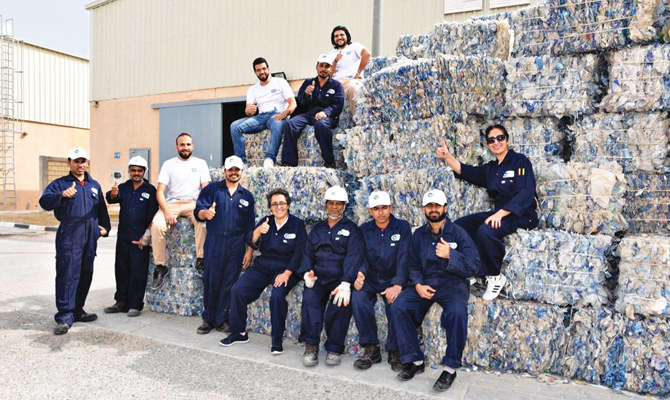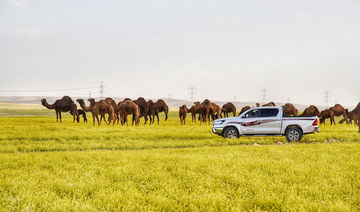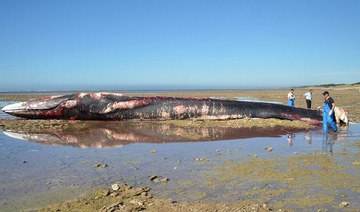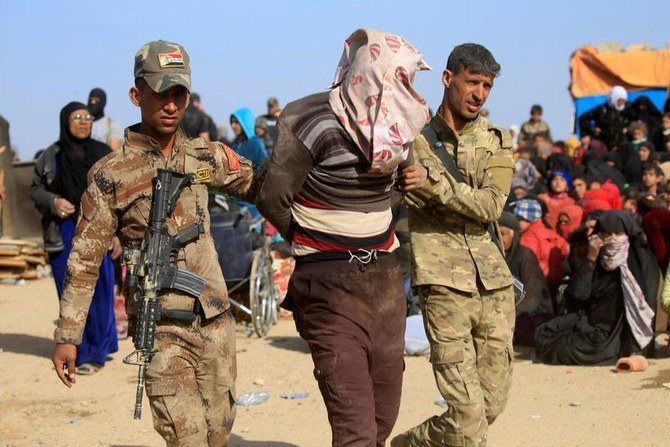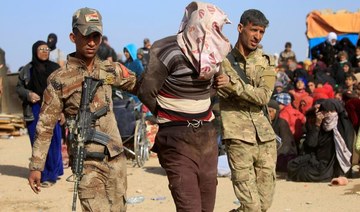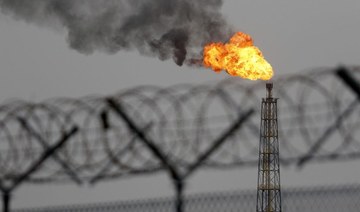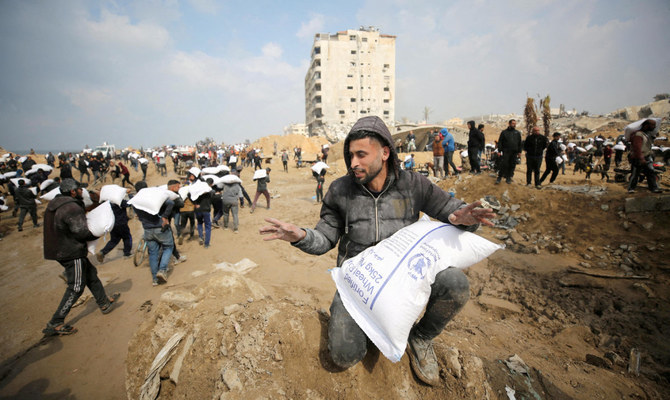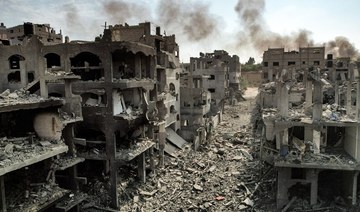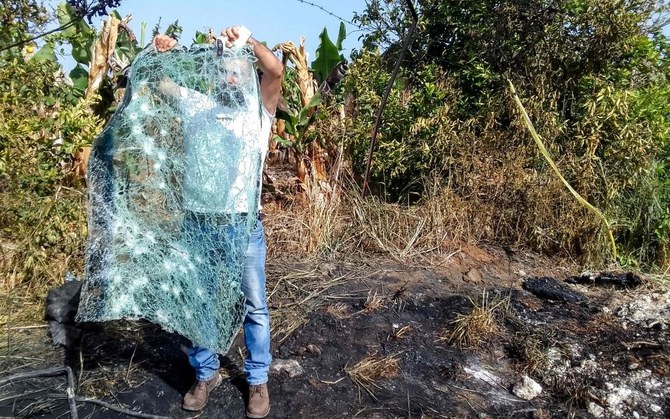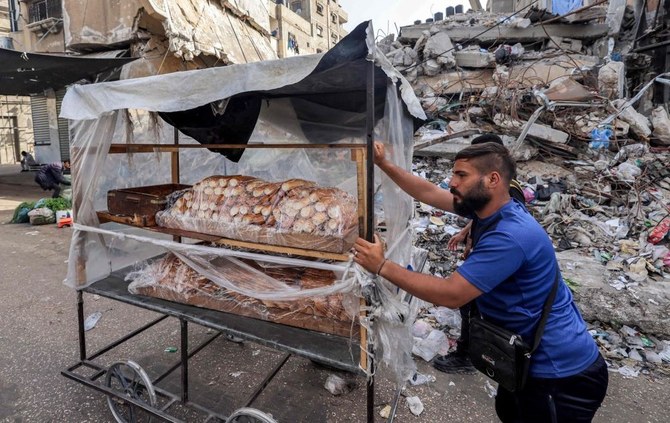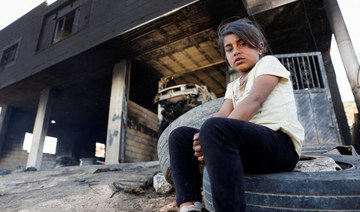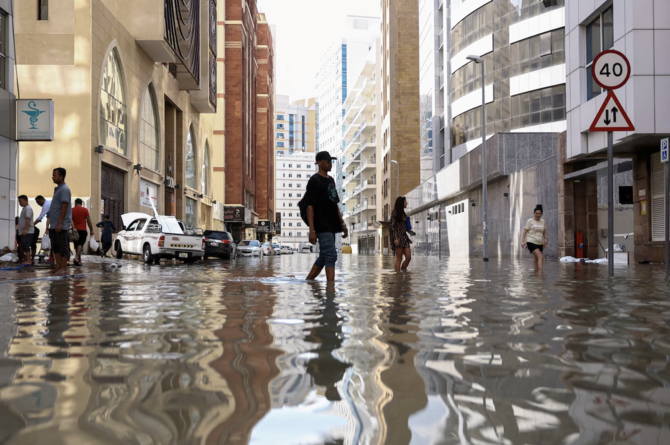KUWAIT CITY: Kuwait has been facing serious challenges in managing its solid waste for some time now.
The dumping of non-biodegradable materials such as plastic into landfills and the subsequent migration of leachate, causing groundwater contamination, has also been equally worrying.
Sanaa Al-Qamlaas, a witness to the unethical dumping of all kinds of waste materials into these sites, said she first felt the need for a change in the management of waste in Kuwait several years ago.
“I often visited landfills and it was hard for me not to tear up watching them,” she said. “I decided that we had to stop at least plastic from going into these landfills as it had a major negative impact on the environment.”
Al-Qamlaas got together with her best friend, Farah Shabaan, and her nephew, Soad Al-Fozan, and soon Kuwait’s first polyethylene terephthalate (PET — plastic) bottle recycling project, Omniya, was born.
Starting in August 2015, the trio initially focused on the collection and recycling of PET bottles as “there were massive quantities of these bottles in the landfills and these were ignored even by the scavengers as they were light-weight,” said Al-Qamlaas.
There were massive quantities of these bottles in the landfills that were ignored by the scavengers.
Sanaa Al-Qamlaas
With a 1,000 dinar ($3,300) budget in hand and no plan for the road ahead, Al-Qamlaas and Shabaan decided one weekend to simply send WhatsApp messages to the people on their contacts list, asking them to segregate their plastics and to drop them in cardboard containers that would be provided at their homes.
Once done, the two friends went to each home to pick up the collected plastic.
“We just sent the message to our friends, but we were in for a surprise when the former minister of social affairs, Hind Al-Sabeeh, contacted us asking us what we were up to. It was a positive indicator of how powerful social media can be,” remembers Al Qamlaas.
The ex-minister encouraged them and told them to get a certification for their initiative.
Omniya’s message was also noticed on Instagram by the chairman and director general of the Environment Public Authority (EPA), Sheikh Abdullah Al-Ahmad Al-Humoud Al-Sabah, who instructed his team to assist the women in their new project.
Omniya started getting calls from residents asking them for containers for their own bottles.
“We went to each home, spoke to everybody, taught them how to crush the plastic bottles, how to segregate plastic; once the bags were full, we took them back in our cars.”
Initially Al-Qamlaas and Shabaan were challenged by the rubbish that users put in with the plastic.
“Our cars stank and our homes too, but all that changed once people knew what to segregate,” said Al-Qamlaas.
They visited 4,500 homes in the first year, going back and forth picking up bottles, followed by visits to around 100 schools to spread awareness. They soon collected enough bottles to get on to the next step — recycling.
With partial financial help from the Kuwait National Fund, Omniya set up the country’s first PET recycling plant.
“We just started production a year ago; we are still hugely in debt as we have to pay our land rent and operate our machinery and do not have any air-conditioners in the factory. But we are producing hot-washed, high-class PET flakes, that we now sell to Ireland, Italy and Turkey — markets with niche specifications,” says Al-Qamlaas.
Realizing that they needed more support to run a factory, the team roped in the private sector for sponsorships and partnered with various organizations such as the United Nations Development Programme (UNDP), the Ministry of Education as well as the Environmental Protection Agency (EPA).
Today, Omniya is a familiar name in Kuwait and the passion is still strong.
“We have just one aim — to stop plastic from going to these landfills,” Al-Qamlaas said. “The road is long and we are tired but we owe it to our country — to the next generation.”
• This report is part of a series being published by Arab News as a partner of the Middle East Exchange, which was launched by the Mohammed bin Rashid Al Maktoum Global Initiatives and the Bill and Melinda Gates Foundation to reflect the vision of the UAE prime minister and ruler of Dubai to explore the possibility of changing the status of the Arab region.



